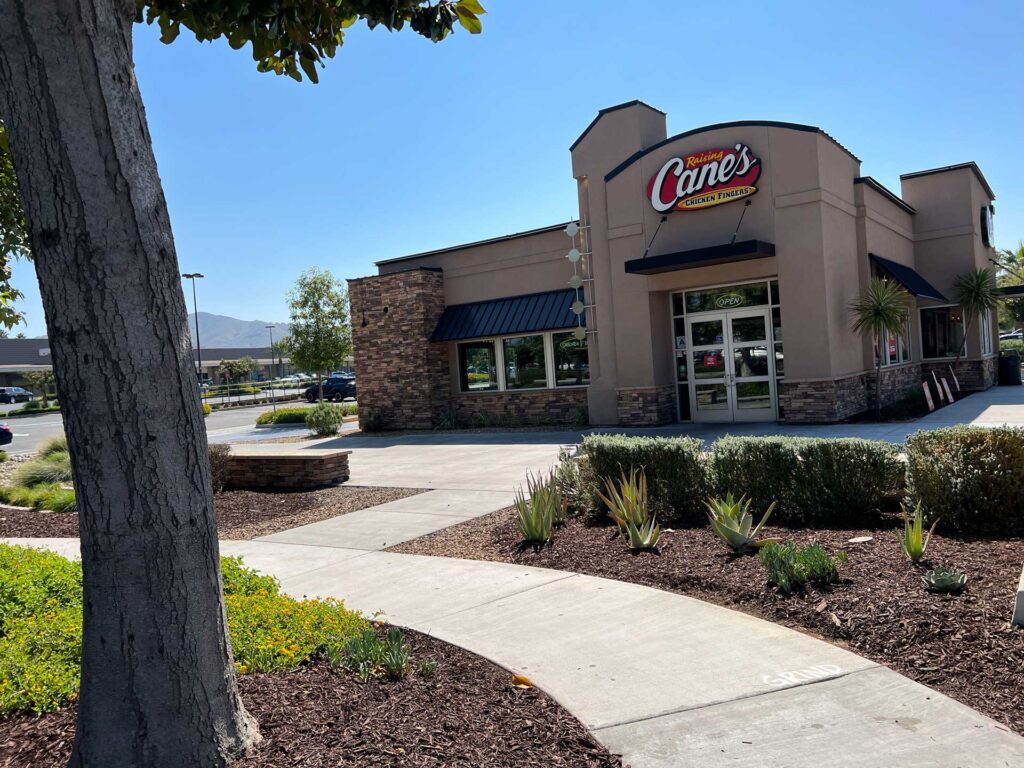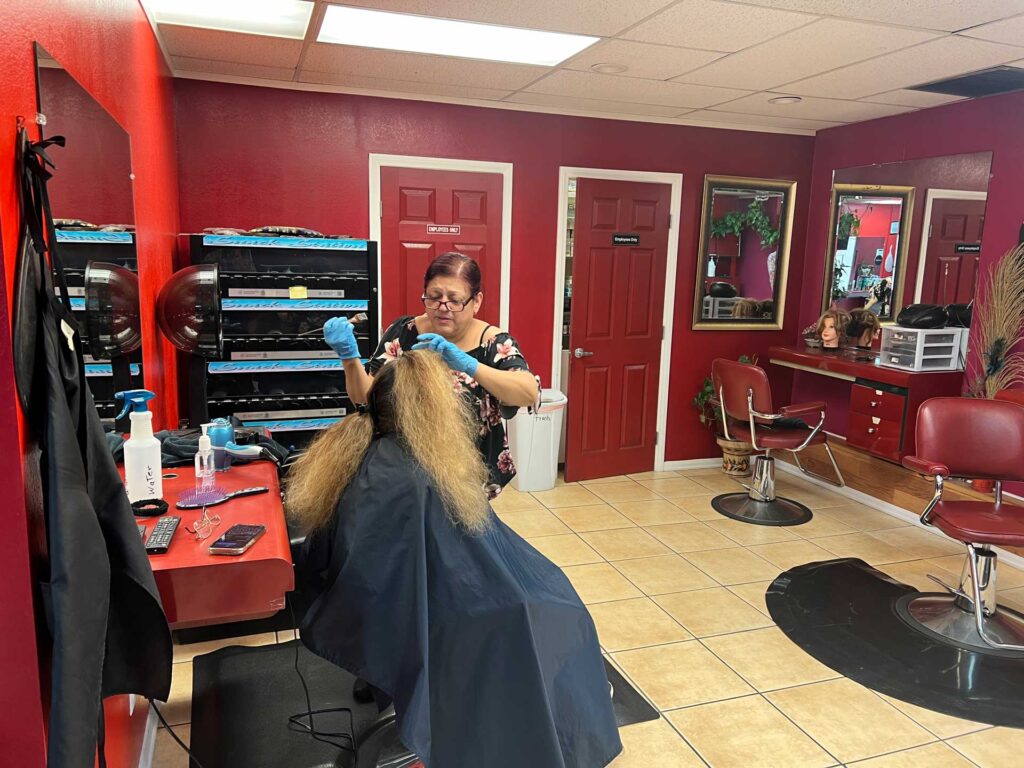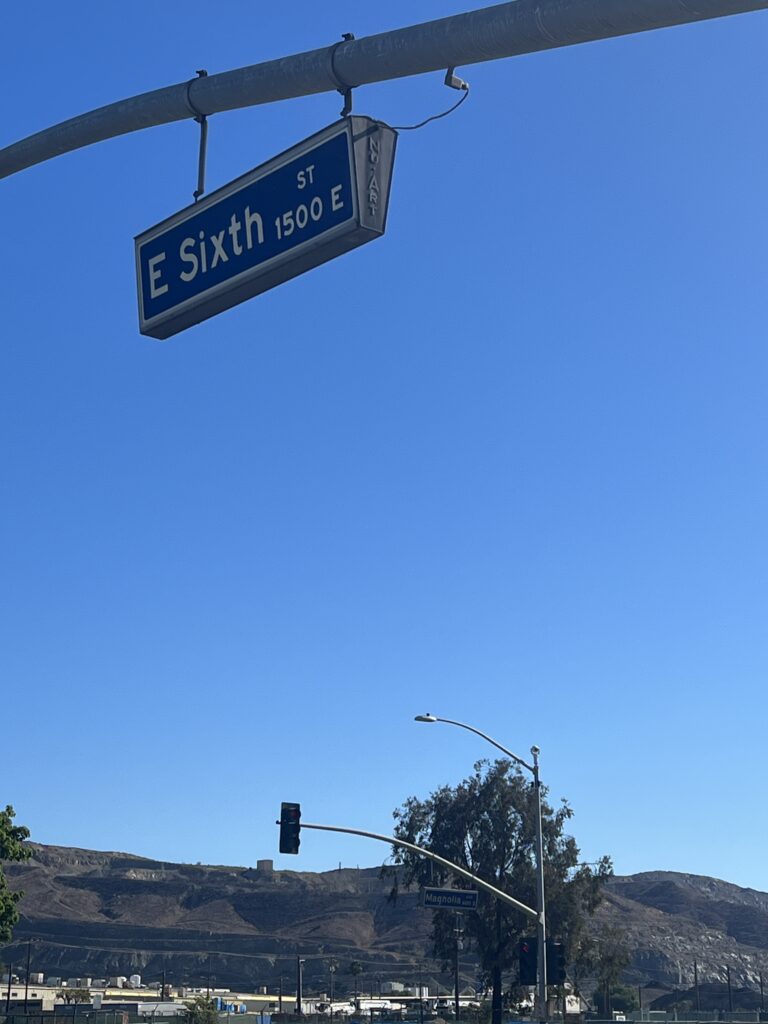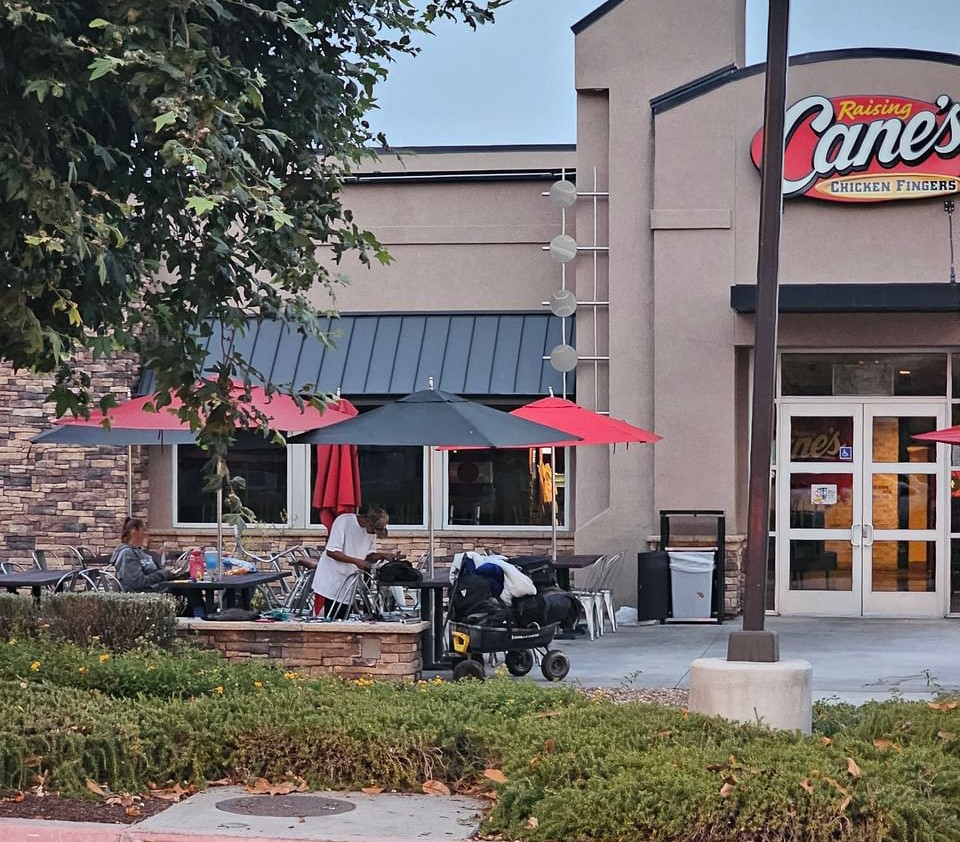(RIVERSIDE, CA) — On a recent fall morning, customers headed to Farmers Boys, a breakfast restaurant famed for its omelets and sandwiches. Outside, they passed a mid-40s woman who, as if at a beauty parlor, perched on a low brick wall holding a mirror while carefully putting on a long purple wig. She smiled and murmured approval. One customer, a young boy, stared in astonishment as his mother gently pushed him into the restaurant.
While homeless living on the street has become a routine sight, their impact on local businesses has become more than a nuisance. For many customers, it’s a gauntlet they must navigate and increasingly avoid in shopping areas across the country.
In Riverside County, the local government estimates there are 3,725 homeless among the almost 2.5 million residents. For at least the last three years, business owners have been impacted by people who linger, cause disruption, litter, harass customers and staff, and even invade their facilities. The crisis has forced business owners to take drastic actions but at a cost to their bottom line.
On a cold and breezy October afternoon, while guests enjoyed chicken fingers and crinkle-cut fries at Raising Cane’s on historic Magnolia Avenue, a disheveled man with a long beard entered the restaurant, holding a large cup. As he headed straight to the soda dispenser, an assistant manager confronted him, pointed the exit and yelled “out, out, out.” Customers watched dumbfounded. “Three weeks ago, we minimized amenities for the homeless; we don’t give out free water to them anymore,” said Markus Zertuche, the restaurant manager.
Since opening in 2015, Raising Cane’s attracted a steady stream of customers, with the outdoor seating area often filled with families and healthcare workers from a nearby Kaiser Permanente who were fond of the restaurant’s patio.
Yet by 2021, the patio became a hangout for many local vagrants toting shopping carts and backpacks. Customers refused to sit and eat outside, forcing the restaurant to remove the 20 tables that sat 50 people from the concrete patio last August. Zertuche said that the situation became unsustainable for the restaurant staff and customers. Despite the dozens of calls made to 911 asking for intervention, they used the restaurant’s outdoor dining to do drugs, panhandle, sleep, and commit sexual acts. “It’s like a hit or miss; authorities sound on the phone like they really care, but in most cases involving the homeless, they don’t show up at all, and our restaurant has to take care of the situation,” said Zertuche.
From 2021 to 2022, the Corona police department reports there were 5,537 homeless-related calls received and 378 arrests for misdemeanor violations, disturbing the peace, trespassing, illegal entry, and vandalism. Business owners made 50% of the calls. “It’s been a problem for our businesses. They are very angry at us, and I don’t blame them. There’s been some theft, lots of vandalism, breaking windows, harassing of customers, and defecating in parking lots,” said Karen Roper, who has served the last three years as Homeless Solutions Manager for the City of Corona.
Two miles away from Raising Cane’s is the picturesque city of Corona, bounded by high elevations of desert, where Elia Alvarez, 55, owns Cynthia Michelle’s Beauty Salon. In the heart of popular 6th Street it’s routine to see prostitution and drug dealing at all hours of the day and night. Alvarez’s shop was invaded by a man in 2021. “All of a sudden, a sweaty man with dirty clothes came into my business demanding money. He looked drugged. We ignored him, and he began throwing chairs,” said Alvarez. He left before the police arrived. Because it is illegal to remove homeless people from public spaces, the Corona and Riverside police could not take action when business owners called complaining about people loitering on their premises.
Alvarez and her three employees reported that it’s commonplace to see people doing drugs, masturbating, and defecating on her doorstep. The man who broke into the beauty parlor was a face that they had seen many times before.
Because of fears among the employees and the customers, in November 2021, the shop cut business hours to 11 a.m. to 7 p.m. Walk-in customers were permanently canceled, and the salon doors is locked. An employee who handled the walk-in clients was laid off after eight years at the beauty parlor.
“Many of my clients prefer to come during the day because at night they are afraid of the homeless chasing them around demanding money,” said Alvarez while applying dye on a client’s long blonde hair. Her husband often comes after his work to stay with her until the shop closes.
The pandemic is at least partially to blame, says Jim Steiner, a City Council member and chairman of Corona’s Homeless Resources Committee. “In 2021, this massive wave of homeless caught us off guard, and we didn’t have any plan to help them or our businesses,” said Steiner.
In 2021, Corona’s Strategic Homeless Plan program was launched, aiming to reduce the number of homeless people. “There’s a lot of people on the streets that they don’t want to be there. They are homeless because they lost their jobs, death of a relative or spouse, domestic violence, mental illness, drug abuse, depression, and the rent in California is just stupid,” said Steiner. In 2023, Corona acquired a 55-room motel and converted it into the city’s second homeless shelter.
Eric Doucette, who teaches Business Management at Norco College, believes that Corona and Riverside should focus less on shelters and more on plans to help the homeless who suffer from mental illnesses and addictions. “Of course, businesses are being severely impacted. No one wants to sit next to a homeless person who is talking to himself or herself, no one wants to go to a store where homeless will chase them begging for money,” said Doucette, who also thinks the police patrolling should be more sustained.
In August 2022, the city of Corona started a business liaison program (BIP) to protect businesses affected by the homeless emergency. Business owners join the program by filling out a trespassing order that gives the police department the ability to go and arrest the suspect without concerns about retaliation for a lawsuit. According to the Corona Chamber of Commerce in the city of Corona, there are 785 businesses, and as of the date of October 2023, only 141 businesses have joined the Business Liaison Program. “I urge business owners to get more involved with the programs that our city offers because there is some help out there for them, not everything is doom and gloom,” said Council member Steiner.
Corona leads the list of the 27 cities in Riverside County as the city with the most remarkable reduction of homeless on the streets in 2023. At least 175 people are sheltered, and 100 live on the streets of Corona, resulting in a 60% reduction in homelessness. Despite arduous efforts to reduce the number of people living on the streets, the housing crisis still poses a threat to local businesses. Meanwhile, the city of Riverside reports a total of 605 homeless unsheltered and wandering on the streets.
The majority of unsheltered homeless suffer from mental illness and addictions, making it impossible for them to follow the guidelines imposed by the shelters, with curfews the most disregarded rule. Many people prefer to be on the streets, living in parking lots, and invading business spaces. However, any plan to help persons suffering from mental illness and drug addictions is out of the budget for now. “Corona and Riverside are small cities with limited budgets, building a psychiatric hospital for the homeless in each city is a discussion that belongs to the Riverside County administration,” said Steiner.

In August this year Raising Cane’s removed the outdoor sitting with capacity of 50 customers. [Credit: Cristiano Vasquez]

Elia Alvarez applies dye to a client’s hair, while she works, the main door remains locked for fear of the homeless loitering at the doorstep of the beauty parlor. [Credit: Cristiano Vasquez]

The intersection between Magnolia Ave and 6th Street is the point where the cities of Riverside and Corona are delimited. [Credit: Cristiano Vasquez]


